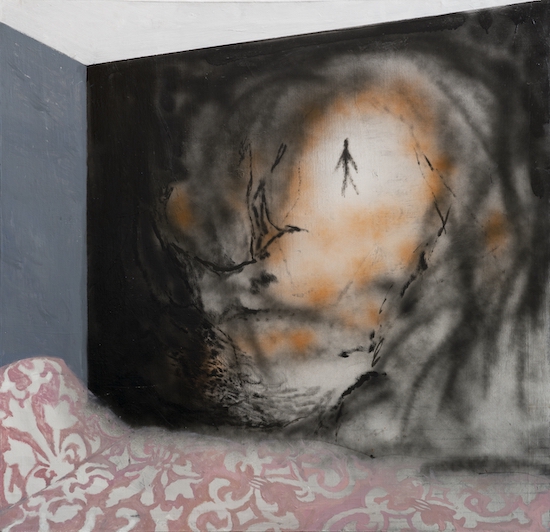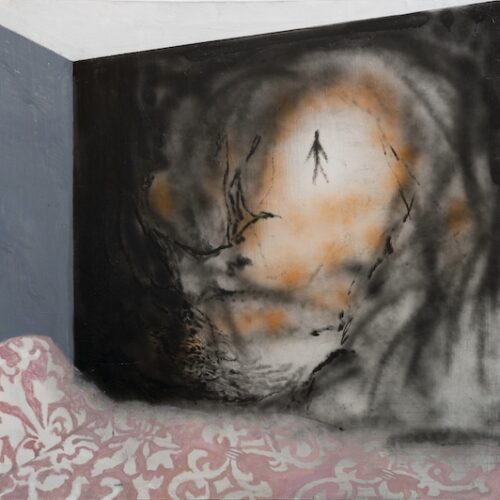For years, kIRk’s music was made of jagged edges and foreboding textures built from trumpet, turntable and electronics. The Polish group’s fragmented sound, which combined decomposed beats and unencumbered improvisation, was codified on albums like 2013’s Zƚa krew and 2015’s III. But with Ich dzikie serca, their music began to soften, and on K, it gets even dreamier. The new album is made of slowly expanding, interwoven tones that feel as if they’re suspended in mid-air. It’s another step in kIRk’s continuous evolution, one that explores the strength of their lighter sound.
Recorded by Paweł Bartnik on electronics, Olgierd Dokalski on trumpet and Stanisław Matys on duduk, K is characterized by an airy, distant sound. Much of the group’s sonic change is driven by this instrumentation: the addition of the duduk, an Armenian reed instrument, adds a wispier quality to the music, as does the electronic palette they use. There’s also a sense of meditation and melancholy throughout the record, drawing on the moodiness of previous releases, but taking a less gloomy stance.
Like kIRk’s previous works, texture plays a large role here, but instead of working with harsh atmospheres, they play with the feathery edges of every note. Tracks like opener ‘Alyona’ particularly showcase this new style, growing from a distant drone into a rich chord over a gentle pulse. Every pitch feels dispersed, coloured by breathiness and delicate playing rather than forceful punches.
However, hints of kIRk’s pummelling past do still appear. At times, this works to their advantage, giving their gossamer tones much-needed vigour; elsewhere, it can lead the music astray. Long-held pitches often strike with heavy accents, sparking then flaming out over time to give even the lightest moments depth. Tracks like ‘Witold’ feel guttural while maintaining a sense of serenity, while tracks like ‘Serafina’ make use of punchy, syncopated rhythm underneath hazy pitches. kIRk’s penchant for the unexpected also comes up, but it doesn’t always cohere. On ‘Niwa’, a blown-out track made of high-pitched bleats and trills, their music feels its most surprising, but it’s all jumbled up, made of ideas that never quite blend.
When kIRk fully grasps their newfound wistfulness, their music shines. Closer ‘Nadir’ uses wafting drones that gradually change pitch and swirl around each other to create a misty wash of sound. Here, kIRk tap into the luminosity of their new sound. Their melancholy feels strong, but there’s also a sense of radiance, a glow that emanates from every pitch. Within the most translucent of tones, there’s still a great power – and on K, kIRk unleash it.




